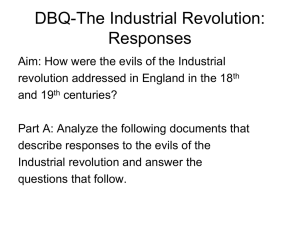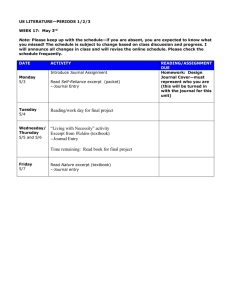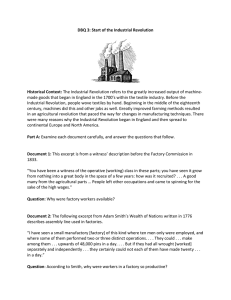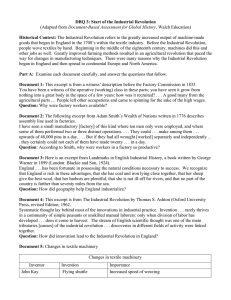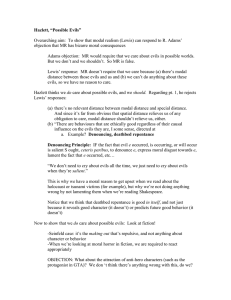Document-Based Assessment for Global History
advertisement
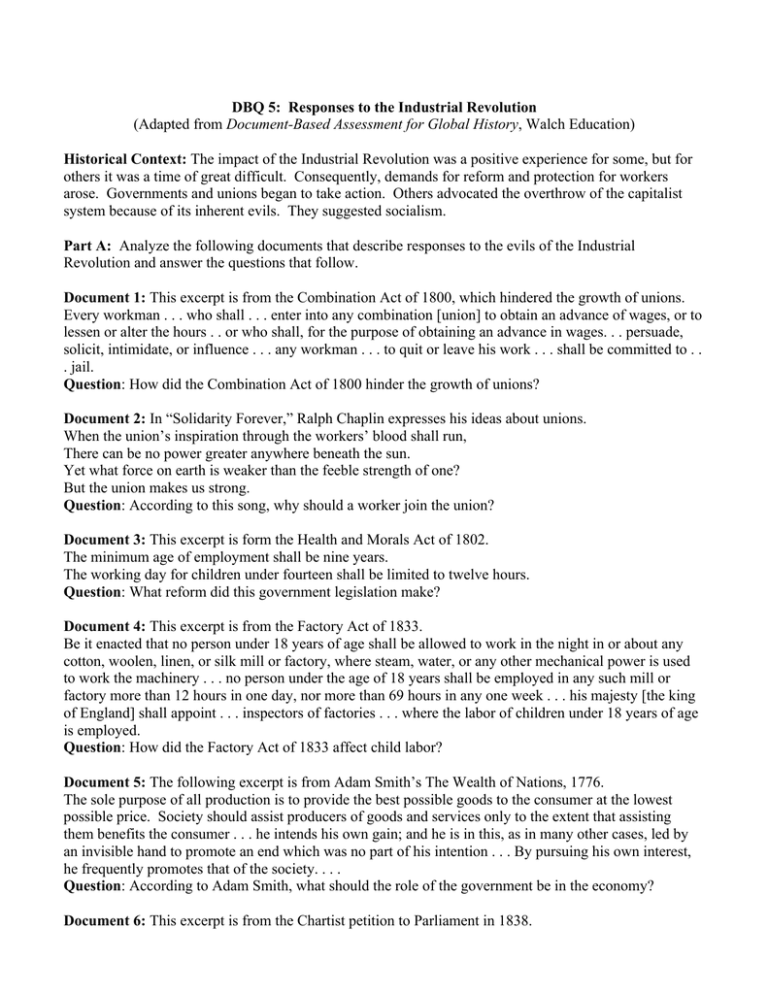
DBQ 5: Responses to the Industrial Revolution (Adapted from Document-Based Assessment for Global History, Walch Education) Historical Context: The impact of the Industrial Revolution was a positive experience for some, but for others it was a time of great difficult. Consequently, demands for reform and protection for workers arose. Governments and unions began to take action. Others advocated the overthrow of the capitalist system because of its inherent evils. They suggested socialism. Part A: Analyze the following documents that describe responses to the evils of the Industrial Revolution and answer the questions that follow. Document 1: This excerpt is from the Combination Act of 1800, which hindered the growth of unions. Every workman . . . who shall . . . enter into any combination [union] to obtain an advance of wages, or to lessen or alter the hours . . or who shall, for the purpose of obtaining an advance in wages. . . persuade, solicit, intimidate, or influence . . . any workman . . . to quit or leave his work . . . shall be committed to . . . jail. Question: How did the Combination Act of 1800 hinder the growth of unions? Document 2: In “Solidarity Forever,” Ralph Chaplin expresses his ideas about unions. When the union’s inspiration through the workers’ blood shall run, There can be no power greater anywhere beneath the sun. Yet what force on earth is weaker than the feeble strength of one? But the union makes us strong. Question: According to this song, why should a worker join the union? Document 3: This excerpt is form the Health and Morals Act of 1802. The minimum age of employment shall be nine years. The working day for children under fourteen shall be limited to twelve hours. Question: What reform did this government legislation make? Document 4: This excerpt is from the Factory Act of 1833. Be it enacted that no person under 18 years of age shall be allowed to work in the night in or about any cotton, woolen, linen, or silk mill or factory, where steam, water, or any other mechanical power is used to work the machinery . . . no person under the age of 18 years shall be employed in any such mill or factory more than 12 hours in one day, nor more than 69 hours in any one week . . . his majesty [the king of England] shall appoint . . . inspectors of factories . . . where the labor of children under 18 years of age is employed. Question: How did the Factory Act of 1833 affect child labor? Document 5: The following excerpt is from Adam Smith’s The Wealth of Nations, 1776. The sole purpose of all production is to provide the best possible goods to the consumer at the lowest possible price. Society should assist producers of goods and services only to the extent that assisting them benefits the consumer . . . he intends his own gain; and he is in this, as in many other cases, led by an invisible hand to promote an end which was no part of his intention . . . By pursuing his own interest, he frequently promotes that of the society. . . . Question: According to Adam Smith, what should the role of the government be in the economy? Document 6: This excerpt is from the Chartist petition to Parliament in 1838. May it please your honorable house, to take our petition into your most serious consideration and . . . to have a law passed, granting to every male of lawful age . . . the right of voting for members of parliament, and . . . elections of members of parliament to be by secret ballot. Question: What were two changes suggested by the Chartists? Document 7: In the Condition of the Working Class in England in1844, Friedrich Engels criticizes capitalism. People regard each other only as useful objects; each exploits the other, and the end of it all is, that the stronger treads the weaker under foot, and that the powerful few, the capitalists, seize everything for themselves, while to the weak . . . the poor, scarcely a bare existence remains. Question: What are Engels’ criticisms of capitalism? Document 8: Here is an excerpt from the Communist Manifesto written by Marx and Engels in 1848. The Communists . . . openly declare that their ends can be attained [gained] only by the forcible overthrow of all existing social conditions. Let the ruling classes tremble at a communist revolution. The proletarians have nothing to lose but their chains. They have a world to win. Working men of all countries, unite! Question: What solution to the evils of capitalism did Marx and Engels recommend? Part B—Essay: How were the evils of the Industrial Revolution addressed in England in the eighteenth and nineteenth centuries?
